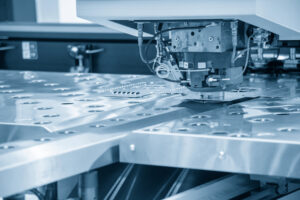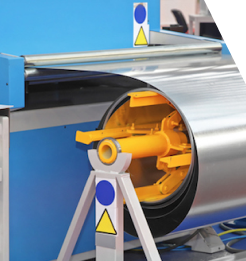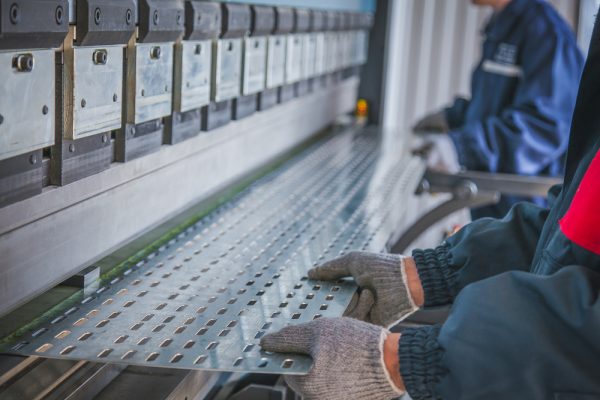Navigating the Future of Industrial Fabrication, Service, and Trends in Heavy Metals
The present manufacturing environment is evolving fast and industrial fabrication services are subjected to a major transformation. Technical innovation, evolving consumer needs and sustainability demands are reshaping the landscape particularly the domain of heavy metals. Companies that work with facilities such as – custom metal fabrication and sheet metal fabrication must stay ahead of these trends for remaining competitive.
In this blog, we will provide a detailed look at this industry’s future image and discuss how businesses can navigate the future of industrial fabrication.

Growing demand for customization
Whether you work in the industrial fabrication industry or not, you should be familiar with the term customization. As industries such as automotive, construction, and aerospace need more specific, high-performance metal components, custom metal fabrication is becoming increasingly important.
Clients today demand fabricated parts tailored to unique dimensions, performance, and application needs. This shift is prompting fabrication shops to invest in flexible manufacturing procedures and advanced CAD/CAM software, assuring efficiency and precision even for small-batch or one-off orders.
Investing in different design capabilities and promoting the custom fabrication services will position your business as the leader in this growing market.
Automation and robotics integration
Automation is no longer an alien word to the common man. It continues to transform the domain of industrial fabrication. From robotic welding arms to automated heavy-duty sheet metal shears, these techniques elevate production speed, improve workplace safety, and reduce errors.
Robotic systems now manage intricate bending, cutting, and assembly tasks that once required hours of manual labor. Automation also allows shops to manage a higher volume of projects with better consistency and quality control.
It is high time for businesses to integrate automation into their operations. Investing in smart machinery will elevate your commercial sheet metal fabrication abilities and future-proof your business.
Sustainable fabrication practices
Environmental concerns are increasingly inspiring the fabrication industry. Businesses are expected to adopt sustainable practices that reduce waste, use energy more effectively and lower emissions.
Recycling scrap materials, using sustainable materials, and investing in energy-efficient machines are becoming standard industry practices. Regulators and customers alike are holding businesses accountable for their environmental footprint.
Sustainability strategies include:
- Designing for recyclability and disassembly
- Using low-impact manufacturing processes
- Sourcing raw materials responsibly
At its core, everyone knows that embracing green methods not only protects the planet but also attracts eco-conscious partners and clients.
Advances in material science
New composites and alloys offer greater possibilities in metal fabrication. High-strength, lightweight materials such as titanium alloys, advanced aluminum grades, and stainless steels are in high demand across sectors, including renewable energy and aerospace.
For companies providing commercial sheet metal fabrication, this means adapting procedures to accommodate new materials that need different cutting, forming, and handling techniques.
Investing in updated machinery capable of processing a wide range of metals, particularly with precision tools such as heavy sheet metal shears, will allow organizations to capitalize on these new opportunities.
Regularly train the workforce on different properties and best practices for working with the most demanding materials to stay ahead.
Digital transformation in fabrication
Smart companies, also known as Industry 4.0 facilities, are creating a new standard for metal fabrication. Digital technologies such as IoT sensors, AI-driven analytics, cloud computing, and real-time monitoring are increasing operational efficiency.
These technologies help monitor machine health, optimize production schedules, and predict maintenance needs. Furthermore, online customer portals, digital quoting tools, and consumer portals streamline the ordering procedure for clients investigating custom metal fabrication services.

Embracing digital transformation can make a fabrication company more agile, competitive, and customer-friendly within a growing and fast-paced market.
Workforce evolution
While automation wins over repetitive tasks, the sector still desperately requires skilled workers. Future fabrication will need technicians proficient in CAD design and machine maintenance, blending conventional craftsmanship with digital savvy.
Investing in current certification, training, and partnership with technical schools can help businesses develop the workforce they require to thrive.
Successful shops can combine automation with human expertise for a high-performance, hybrid workforce.
FAQs
Q1: What is commercial sheet metal fabrication?
A: Manufacturing metal goods for companies and industries is known as commercial sheet metal fabrication. It involves forming, cutting, and assembling sheet metal into pieces, apparatus, or buildings intended for commercial use.
Q2: Why is custom metal fabrication important?
A: Compared to mass-produced components, custom metal fabrication ensures superior fit, performance, and efficiency by enabling organizations to obtain solutions that match their demands.
Q3: What are heavy duty sheet metal shears used for?
A: Strong cutting tools called heavy-duty sheet metal shears are made to precisely cut through thick metal sheets. They are indispensable for high-volume, high-strength metal fabrication jobs.
Q4: How is sustainability changing the metal fabrication industry?
A: To comply with environmental requirements and customer expectations, metal fabrication companies are being compelled by sustainability to implement more environmentally friendly procedures, minimize waste, recycle materials, and utilize energy-efficient equipment.
Final thoughts
Metal fabrication, commercial metal manufacturing and custom fabrication all are completely reliant on innovative, sustainable and precise future technologies. Cresco has adopted moder technologies such as championing sustainable practices, building skilled workforce to navigate the future of metal fabrication with confidence.


